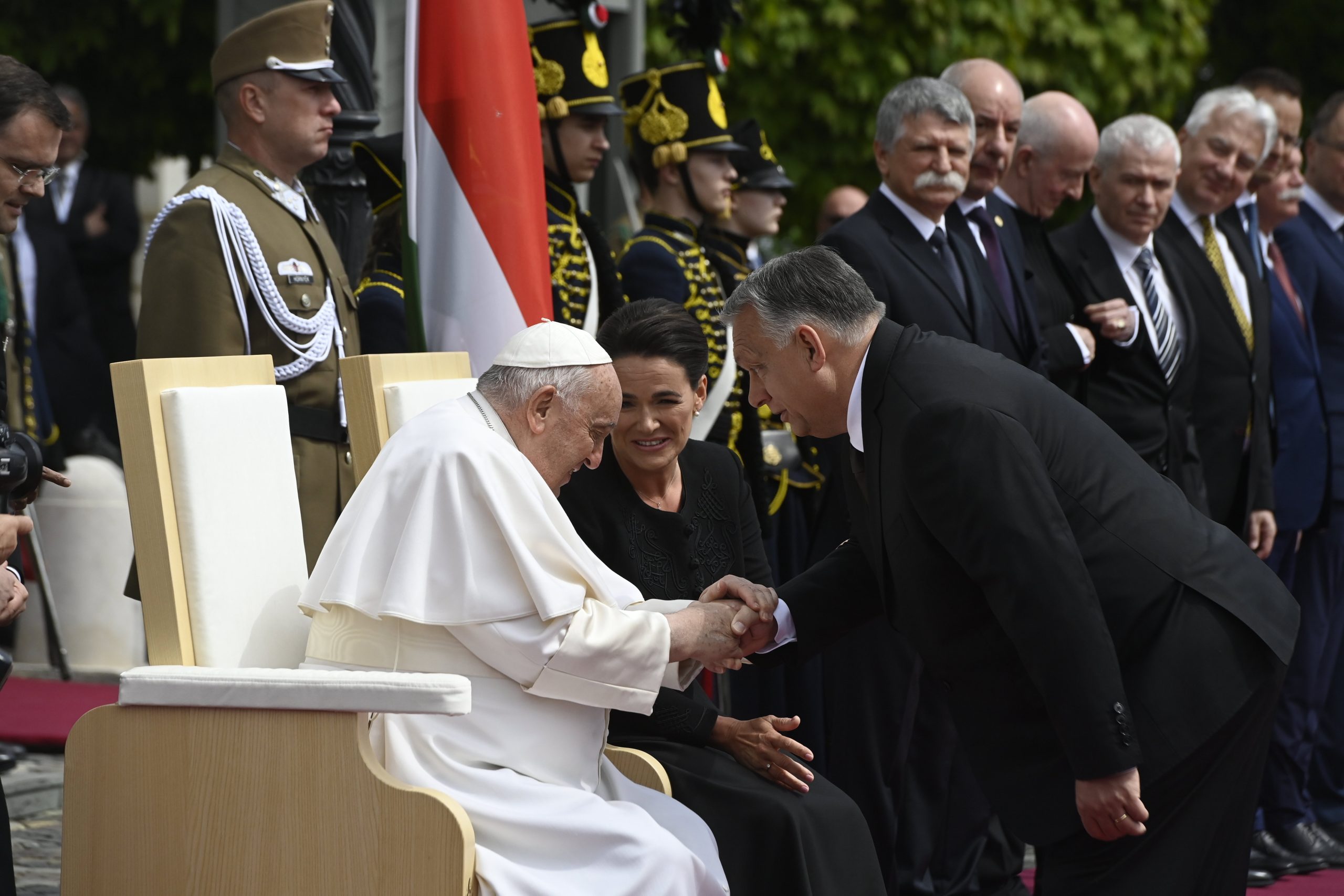
Military parade held for Pope Francis at Buda Castle.Continue reading
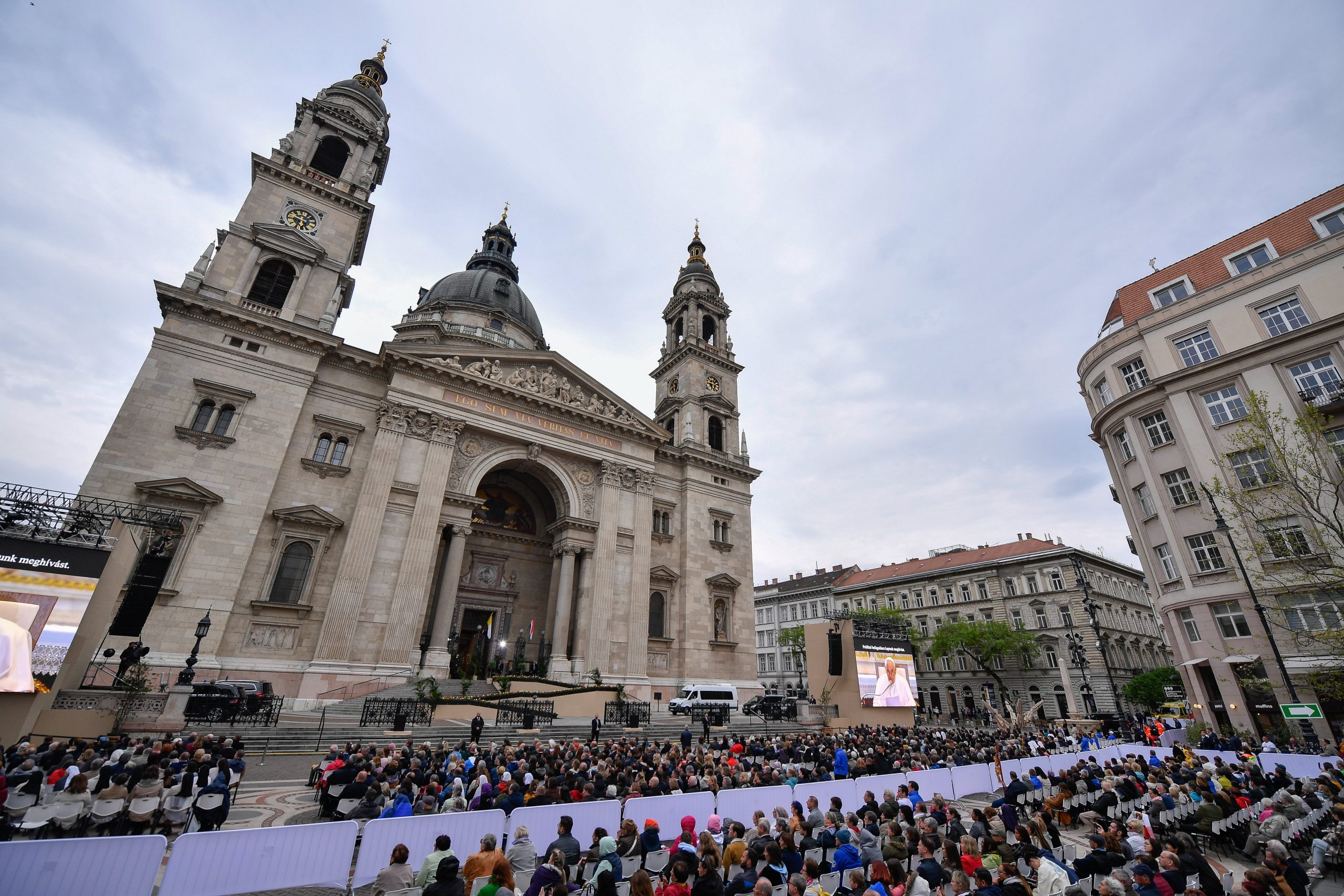
The bishops, priests, monks and nuns who were martyred during the atheist persecution are testimony to the rock-solid faith of the Hungarian people, Pope Francis said in the St Stephen’s Basilica in Budapest on Friday evening, where he met with representatives of the Hungarian Catholic Church.
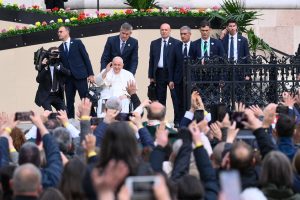
Photo: MTI/Czeglédi Zsolt
Pope Francis commemorated Cardinal József Mindszenty, who believed in the power of prayer: “If there are a million praying Hungarians, I am not afraid of tomorrow!” “Be receptive, be witnesses to the promise of the Gospel, but above all be people of prayer, because history and the future depend on it,” the pope pleaded.
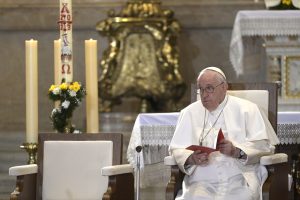
Photo: MTI/Balogh Zoltán
The head of the Church thanked the priests, monks and staff of the Hungarian Church for their faith and faithfulness and for all the good they have and do. He recalled the “courageous and patient witness” of the Hungarian monastic sisters of the Congregation Jesu, whom he met in Argentina after they left Hungary during the religious persecution during the years of Communism, and who did him so much good.
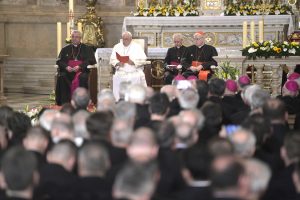
Photo: MTI/Balogh Zoltán
Pope Francis identified one of the Church’s most important tasks as interpreting the changes and transformations of the present age and facing pastoral challenges. “With Christ and in Christ, nothing outside Christ, nothing away from the Lord,” he said. But this is only possible, he said, if we “look to Christ as our future”.
He said: ‘Our lives, however fragile, are firmly in the hands of Christ, and if we forget this, we pastors and laity will seek human means and solutions to protect ourselves from the world, locked in our comfortable and peaceful religious oases. Or, on the contrary, we will adapt to the shifting winds of secularism, and then our Christianity will lose its strength and we will cease to be the salt of the earth.”
These are two temptations the Church must always guard against, he warned. The first is
the “catastrophic reading” of current history, fuelled by the credulity of those who believe that all is lost. The second danger is the naïve reading of our own time, based on conformity and conformity that makes us believe that everything is fine, that the world has changed and that the Church must adapt.
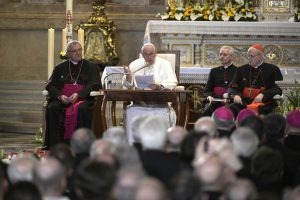
Photo: MTI/Balogh Zoltán
In the face of catastrophic credulity and a worldly spirit of conformity, the Gospel gives us a new vision and the grace of discernment to enter our age with a spirit open to prophecy. This means “learning to recognize the signs of God’s presence in the world, even where it does not appear explicitly in the Christian spirit or where it comes in the form of a challenge or a question,” he explained.
He noted that
even in Hungary, where the tradition of faith is firmly rooted, signs of secularization and its attendant phenomena have appeared, threatening the unity and beauty of the family and exposing young people to the risk of a materialistic and hedonistic ideal of life.
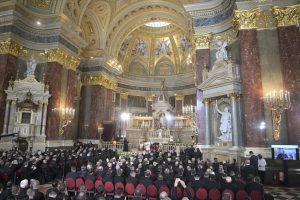
Photo: MTI/Balogh Zoltán
The temptation therefore arises for the Church to become rigid, closed and ‘militant’. But this reality can also be an opportunity for Christians, because it encourages faith, deepening and questioning,” he explained.
He pointed out that the Hungarian Church had many martyrs and confessors of faith during the totalitarian dictatorships of the last century. Blessed János Brenner, who was barbarously murdered at the age of only 26 and who experienced a great deal of suffering, could have chosen to hold a grudge, to close himself off and become rigid. Instead, he was a good shepherd.
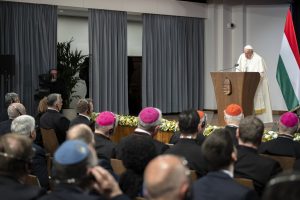
Photo: MTI/Miniszterelnöki Sajtóiroda/Fischer Zoltán
According to Pope Francis, the Hungarian people possess examples of great saints. He highlighted Saint Martin, whose gesture of sharing his cloak with a poor person was much more than an act of charity. It is an image of a Church to strive towards, and one that the Hungarian Church can carry as a prophecy in the heart of Europe: the demonstration of mercy and closeness.
Pope Francis was received at the entrance of the Basilica by Cardinal Péter Erdő, Archbishop of Esztergom and Budapest, and András Veres, Bishop of Győr, President of the Hungarian Catholic Bishops’ Conference (HCPC). The Pope was greeted by priests, deacons, monks, seminarians and pastoral staff. Pope Francis, who received the greetings, had a lengthy chat with two people, also in wheelchairs.
Featured Photo: MTI/Czeglédi Zsolt